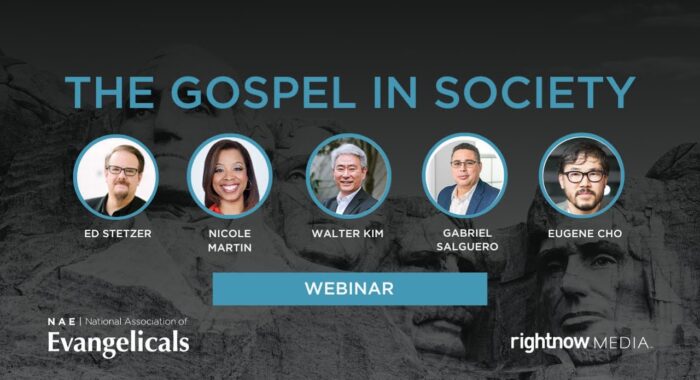For the most part, evangelical leaders like the label “evangelical,” but not all do. Among the board members of the National Association of Evangelicals, 88 percent said they like being called an evangelical while 11 percent said they do not, according to the October Evangelical Leaders Survey.
“Leaders in the evangelical community are excited about their faith. Concern about how the label ‘evangelical’ is perceived by others and its influence on ministry opportunities does give some evangelical leaders pause,” said NAE President Leith Anderson.
Even among those who said that they liked the evangelical label, there was a range of attitudes noted in the comments leaders added to their answers from “Absolutely!” to “Depends on the setting” to “Been called worse!”
The term “evangelical” can be a helpful way to describe the many Christians who embrace biblical truth and seek to introduce their neighbors to Jesus Christ. As Joel Hunter, Senior Pastor of Northland, a Church Distributed, said, “It lets others know I will probably be sharing my faith with them.”
Many agreed with the sentiment of Jay Barnes, President of Bethel University. “It is a label that is rich with history and specific meaning. It captures my place in the Christian family well,” he said.
H Miller, Rector General of the Anglican Mission in the Americas, qualified his answer with “I am happy to be an evangelical if we are both using the same meaning of the word.” Many survey respondents expressed their dismay at the way in which the term has been unfairly linked to political positions or laden with negative connotations, such as bigoted and narrow-minded.
Regardless, some evangelical leaders see the confusion about what “evangelical” means as an opportunity to evangelize. “I love to tell the story of Jesus and his love,” said Mitch Hescox, President of the Evangelical Environmental Network. “Those words express the meaning of an evangelical and words I am most happy to attempt to live up to with God’s help.”
David Neff, former Editor-in-Chief of Christianity Today, added, “Though the term is not as positive as it once was, the changes in public perception give me opportunities to explain what evangelicals and the evangelical movement are all about.”
Anderson said, “Evangelicals want to be identified as people who take the Bible seriously and believe in Jesus Christ as Savior and Lord. Right now ‘evangelical’ is the best single word we have to communicate that.”
The Evangelical Leaders Survey is a monthly poll of the Board of Directors of the National Association of Evangelicals. They include the CEOs of denominations and representatives of a broad array of evangelical organizations including missions, universities, publishers and churches.



 View All Surveys
View All Surveys 




























